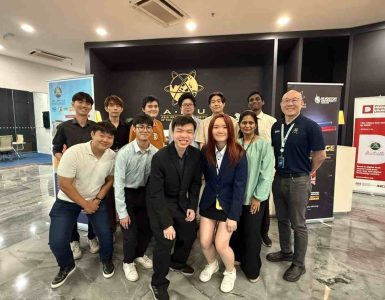
Malaysia must protect worker and union rights, and withdraw proposed unjust amendments to the Employment Act. Labour suppliers should not be employers.
We, the undersigned 107 organizations, groups and networks are disturbed that the Malaysian government has proceeded to table the Employment (Amendment) Bill 2011 , and got it passed speedily on 6/10/2011 at the Dewan Rakyat (House of Representative) despite protests from workers, trade unions and civil society.
The proposed changes to the Emloyment Act would be most detrimental to worker rights, trade unions and the existing just direct 2-party employment relationship between worker and end-user (the principal).
Malaysia’s action goes contrary to justice. In many countries employers have been wrongly trying to avoid/disguise employment relationships by way of contracts/agreements and triangular relationships, and Malaysia rather than fighting against this negative trend is now trying to legalize it, hence showing itself to be anti-worker anti-unions.
We note also that the amendments would result in discrimination at the workplace, as many workers at a factory, plantation or any workplace would end up being no longer employees of the owner-operator of the said workplace, also referred to as the principal or end-user, but would remain employees of the supplier of workers, known as ‘contractor for labour’.
Workers doing the same work at the factory, would be treated differently in terms of wages, work benefits and even rights by reason of the fact that their employers are different. This will also go against the Malaysian Federal Constitution that guarantees equality of persons. We advocate that all workers working at a factory or workplace are entitled to be treated equally in terms of wages, work benefits, rights, union rights, reliance on collective agreements and other entitlements.
The proposed amendment would also destroy direct employment relationships between owner-operator of workplaces, being the principal, and the workers that work there producing the product or providing the services from which these principals derive their profits.
A just employment relationship dictates that all workers should be employees of the owner-operator employer not some other third party labour supplier, whether they be known as ‘contractor for labour’, outsourcing agent or by any other name.
The relationship must be a direct relationship, to the exclusion of all third parties, between the employer who needs workers to do the work to produce the goods of their business for profits, and the workers directly who provide the necessary labour as required in exchange for fair wages and other benefits.
The availability of short-term employment contracts is another reason why there is no need to legalize triangular or other employment relationships in Malaysia through the creation of the ‘contractor for labour’.
To fight for decent wages and rights, and to be able to negotiate and get better working conditions and other work benefits, workers at a workplace would generally come together collectively or as a union to be able to negotiate from a stronger position with employers, and this would result in agreements or ‘collective agreements’ between employers and workers (or their unions).
If the amendments proposed become law, then many workers at the factory would effectively lose their rights to be able to form or be members of the trade union at the workplace, or the right to directly and effectively negotiate with the principal who effectively controls the work place, working conditions and benefits.
If the proposed amendment becomes law, effectively it will also weaken existing workers and unions, by reducing their negotiating power for now when a strike or a protest in called, there will be other workers of other third party employers who will continue to work normally thus making worker struggle for better rights almost impossible. This proposed amendment is a ‘union busting’ exercises and allows employers to utilize ‘divide and rule’ tactics to counter legitimate demands of their workers and avoid employer obligations and responsibilities. Another unjustifiable proposed changed is the delay of payment of overtime and work on rest days by a month.
With regard to sexual harassment, the new provision provides only for inquiry by employer even when the alleged perpetrator is a member of the management, a partner, shareholder and/or director of the employer’s business, and provides no clear right of appeal to the Labour Courts or the High Court. Note that other worker rights violations are currently all dealt with by the definitely more independent Labour Department or Industrial
Relations Department. Remedy for the victim of sexual harassment is also absent, save maybe the right to resign without the need to give the required notice when the perpetrator is a sole proprietor.
The Malaysian Trade Union Congress (MTUC), which represents over 800,000 workers of member unions, who is also is the accepted workers representative in Malaysia, picketed calling for the withdrawal of the amendments on 3/10/2011, and apparently despite the Minister assuring them that the amendment will only be tabled at the end of the month, was suddenly rushed and passed at the Lower House of Malaysia’s Parliament on 6/10/2011.
Malaysia has the Private Employment Agencies Act 1971, whereby these agencies rightfully get workers for employers, who then pay them a fee for the service, and once workers are received by the employer, these workers immediately become employees of the said employer. The amendments will creates a new kind of labour supply companies who will continue as employers of the workers even after they start working at the workplace of the principal, and this is unacceptable. All companies in the business of
finding workers for companies that need workers to produce their products or for their business must be private employment agencies, and must never assume or retain the role of employers.
As the said Bill still needs to be passed by the Senate and receive royal assent, before it becomes law, we call on the Malaysian government to act in the best interest of workers and their unions and immediately withdraw this unjust proposed amendments to Employment Act 1955.
We call on Malaysia to immediately discontinue its policy of recognizing outsourcing agents, and act immediately against practices of some employers and outsourcing agents that try to avoid/disguise employment relationships to the detriment of workers and unions.
We call on countries and regional bodies, companies, ILO, trade unions and persons to do the needful to ensure that worker and union rights, not just of local but also migrant workers, are protected in Malaysia, and that the employment relationship continue to be between owner-operator end user employers who actually need workers to do work and the workers that work there to the exclusion of any third party labour suppliers or ‘contractors for labour’.
Charles Hector, Pranom Somwong, for and on behalf of the 107 Organisations listed below:-
Abra Migrant Workers Welfare Association – Hong Kong (AMWWA)
Abra Tinguian Ilocano Society – Hong Kong (ATIS-HK)
ALIRAN, Malaysia
All Women’s Action Society (AWAM), Malaysia
Asian Migrants Center (AMC), Hong Kong
Asia Monitor Resource Centre (AMRC), Hong Kong
Asia Pacific Mission for Migrants (APMM)
Asia Pacific Forum on Women, Law and Development (APWLD)
Asian Migrants’ Coordinating Body – Hong Kong (AMCB)
Association for Community Development-ACD, Bangladesh
Association of Concerned Filipinos in Hong Kong (ACFIL-HK)
Association of Indonesia Migrant Workers in Indonesia (ATKI-Indonesia)
Australian Council of Trade Unions (ACTU)
BAYAN Hong Kong
Building and Wood Worker’s International (BWI) Asia Pacific
Burma Campaign, Malaysia
Cambodian Human Rights and Development Association (ADHOC)
Cambodian League for the Promotion and Defense of Human Rights (LICADHO)
Center for Indonesian Migrant Workers (CIMW)
Center for Trade Union and Human Rights (CTUHR)
Clean Clothes Campaign (CCC)
Coordination of Action Research on Aids and Mobility (CARAM-ASIA)
Committee for Asian Women (CAW)
Community Action Network (CAN), Malaysia
Confederation of Voluntary Associations (COVA), Hyderabad, India
Cordillera Alliance Hong Kong (CORALL-HK)
Democratic Party For A New Society (DPNS), Burma
Dignity International, Malaysia
Education and Research Association for Consumers Malaysia (ERA Consumer
Malaysia)
Filipino Friends Hong Kong (FFHK)
Filipino Migrants Association – Hong Kong (FMA)
Filipino Migrant Workers’ Union – Hong Kong (FMWU)
Filipino Women Migrant Workers Association – Hong Kong (FILWOM-HK)
Foundation for Women, Thailand
Friends of Bethune House (FBH), Hong Kong
GABRIELA Hong Kong
GABRIELA Philippines
Good Shepherd Sisters, Malaysia
Health Equity Initiatives (HEI), Malaysia
Housing Rights Task Force, Cambodia
Human Rights Education Institute of Burma (HREIB)
Human Security Alliance (HSA)
International Metalworkers’ Federation (IMF)
IMA Research Foundation, Bangladesh
INFID (International NGO Forum on Indonesian Development )
Institute for National and Democratic Studies (INDIES)
International Trade Union Confederation (ITUC)
Jakarta Legal Aid Institute, Indonesia
JERIT, Malaysia
Karmojibi Nari , Bangladesh
Kalyanamitra, Indonesia
Kav La’Oved , Israel
Kilusang Mayo Uno Labor Center
Komite Independen Pemantau Pemilu (Independent Committee for Election
Monitoring), Indonesia
Legal Support for Children and Women (LSCW), Cambodia
LLG Cultural Development Centre, Malaysia
Malaysians Against Death Penalty and Torture (MADPET)
Malaysian Election Observers Network (MEO-Net)
MakeItfair
MAP Foundation, Thailand
Maquila Solidarity Network, Canada
May 1st Coalition for Worker & Immigrant Rights, NY-USA
Migrant CARE, Indonesia
Migrant Forum in Asia (MFA)
Migrant Trade Union, Korea (MTU)
Migrante International
National Alliance of Women Human Rights Defenders, Nepal
Network of Action for Migrants in Malaysia (NAMM)
National League For Democracy (Liberated Area )[ NLD(LA)], Malaysia
Pakistan Rural Workers Social Welfare Organization (PRWSWO)
Peduli Buruh Migran, Indonesia
Penang Watch, Malaysia
People’s Green Coalition
Pergerakan Indonesia
Perkumpulan PRAXIS, Indonesia
Persatuan Kesedaran Komuniti, Selangor (EMPOWER)
Persatuan Masyarakat Selangor & Wilayah Persekutuan (PERMAS)
Persatuan Sahabat Wanita Selangor
Pinatud a Saleng ti Umili (PSU)
Pusat KOMAS, Malaysia
Quê Me: Action for Democracy in Vietnam
Saya Anak Bangsa Malaysia (SABM)
Sedane Labour Resource Center/(Lembaga Informasi Perburuhan Sedane),
Indonesia
Serikat Buruh Migran Indonesia (SBMI)
Shan Women Action Network (SWAN), Thailand
Silicon Valley Toxics Coalition
Solidaritas Perempuan (Women’s Solidarity for Human Rights), Indonesia
SOS(Save Ourselves), Malaysia
Suaram, Malaysia
Tenaganita, Malaysia
Thai Committee for Refugees Foundation (TCR)
The Filipino Women’s Organization in Quebec, Canada
The GoodElectronics Network
Think Centre (Singapore)
UNIMIG (Union Migrant Indonesia)
United Filipinos in Hong Kong (UNIFIL-MIGRANTE-HK)
United Pangasinan in Hong Kong (UPHK)
Urban Community Mission (UCM Jakarta), Indonesia
Vietnam Committee on Human Rights
WARBE Development Foundation, Bangladesh
Women Forum for Women, Nepal
Women Legal BUREAU, Philippines
WOREC, Nepal
Workers Assistance Center, Inc (WAC), Philippines
Workers Hub For Change (WH4C)
Yasanti
Yayasan LINTAS NUSA (Batam Indonesia)











